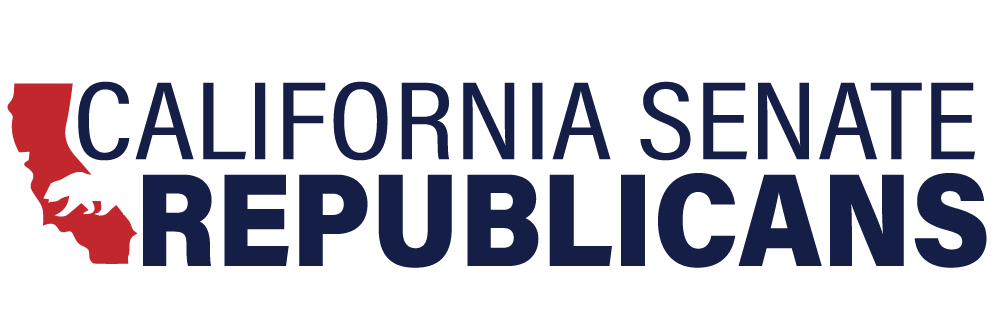Subcommittee #1 (Education)
Laird (D-Santa Cruz) Chair, Ochoa Bogh (R-Yucaipa), Min (D-Irvine) & Smallwood-Cuevas (D-Los Angeles)
Supporting Affordable Housing for College Students. The 116 California community colleges provide tremendous opportunities for Californians to gain the education needed to pursue their career goals. Senator Rosilicie Ochoa Bogh (R-Yucaipa) spoke in support of building student housing as a way to help address one of students’ highest costs, and she raised concerns about the Governor’s proposal to delay $250 million previously budgeted to build student housing. In a state that struggles more broadly with an extraordinarily high cost of living, students will be negatively affected by a continued lack of affordable housing. The subcommittee will vote on housing and other community college budget issues at a future hearing in May or June.
Subcommittee #2 (Resources, Environmental Protection, and Energy)
Becker (D-Menlo Park) Chair, Dahle (R-Bieber), McGuire (D-Healdsburg)
Governor Proposes Less Oversight of Electric Utilities. The subcommittee discussed, but did not vote on, the Governor’s proposal to reduce oversight of electrical corporations’ efforts to reduce wildfires. Power companies are required to submit plans describing efforts to minimize the risk of utility-caused wildfires to the Office of Energy Infrastructure Safety (OEIS) for review and approval. The plans include vegetation management projects to reduce the risk of power lines connecting with trees and starting a wildfire. Currently, OEIS is required to promptly audit utility compliance with vegetation management requirements upon completion of projects. However, the Governor proposes to make these audits optional, rather than required. Senator Brian Dahle (R-Bieber) expressed great concern about decreasing this oversight. He said, “These requirements exist to provide oversight of utilities that have for decades failed to maintain their systems and failed to put the safety of the public before their profits. A previous lack of oversight resulted in these utilities being responsible for wildfires that have killed people. Oversight should not be decreased.” A vote on this issue is expected in a future budget hearing. Subcommittee #3 (Health and Human Services) Menjivar (D-San Fernando Valley) Chair, Grove (R-Bakersfield), Eggman (D-Stockton), & Roth (D-Riverside)
Despite Homelessness Crisis, Governor Cuts Funding for Mental Health Beds. The subcommittee heard the Governor’s proposal to delay $480 million in General Fund previously approved for counties to increase mental health treatment bed capacity. The Governor’s new timeline would delay those dollars for up to three years. Given the obvious increase in seriously mentally ill homeless individuals living and dying on California’s streets, this funding should be a high priority for keeping in the budget. Last year, when the state had a surplus, Senate Republicans urged Governor Newsom to permanently end the treatment bed deficit, estimated to be more than 7,000 beds. Instead of fixing the problem, however, the Governor chose an amount insufficient to meet the demand. Now even that funding will be put on hold for years. Over 170,000 homeless individuals, the most by far of any state, are suffering on California streets. The public should ask why the Governor is willing to keep them there. The subcommittee will vote on the issue at a future hearing.
Subcommittee #4 (State Administration and General Government) Padilla (D-San Diego) Chair, Niello (R-Fair Oaks), & Caballero (D-Merced)
Homelessness Program Accountability Lacking. The subcommittee discussed the Governor’s proposed bill language to increase accountability within state homelessness programs. There are increasing demands from the public for greater transparency about how state homelessness dollars are spent and what accountability measures are in place. The Governor’s initial proposal could result in punishing smaller jurisdictions instead of encouraging cooperation among all levels of state and local government. As Senator Niello commented, “The one-size-fits-all approach doesn’t work.” State and local entities need to set clear roles and responsibilities in order to increase accountability and transparency.
Governor Fails to Prioritize Homeownership. The subcommittee heard the Governor’s housing proposals, which included a reduction of $150 million in 2023-24 for programs seeking to increase homeownership and accessory dwelling unit opportunities. California’s overall homeownership rate has continued to decline and opportunities for working families have never been more constrained. Recent studies indicate one of the main reasons people as well as businesses are fleeing the state is due to the high cost of housing. Fixing California’s housing crisis primarily needs broad regulatory and legal reforms, but in the meantime, homeownership programs can benefit moderate-income Californians who are hurt by the majority party’s misguided housing policies. Efforts to solve California’s budget deficit should focus on redundancy and waste in other areas.
Subcommittee #5 (Corrections, Public Safety, Judiciary, Labor, and Transportation)
Durazo (D-Los Angeles) Chair, Seyarto (R-Murrieta), & Newman (D-Fullerton)
Businesses Pay for Governor’s Broken Promises. The subcommittee discussed various labor issues, including the Governor’s proposal to reduce promised funds to pay back a small portion of money borrowed to cover unemployment claims. During the COVID-19 pandemic, lengthy state-mandated business shutdowns caused unemployment to skyrocket. California ran out of money to provide unemployment benefits and had to borrow funds from the federal government. Today, California owes the federal government $19 billion and is one of only five states that have not repaid their loans. Job creators did not volunteer for this debt, but they must now bear the costs of repaying it through higher taxes. Those costs will make it more difficult to create new jobs in California, which continues to experience an unemployment rate that is higher than the vast majority of other states. Last year, the budget promised a meager $1 billion over two years to help pay down this debt, but now the Governor proposes to cut $750 million of that amount. Reducing this massive debt should have been a priority for the budget during the recent surpluses. California needs to do more to help businesses repay this debt, not less. The subcommittee will vote on this issue at a future hearing.
